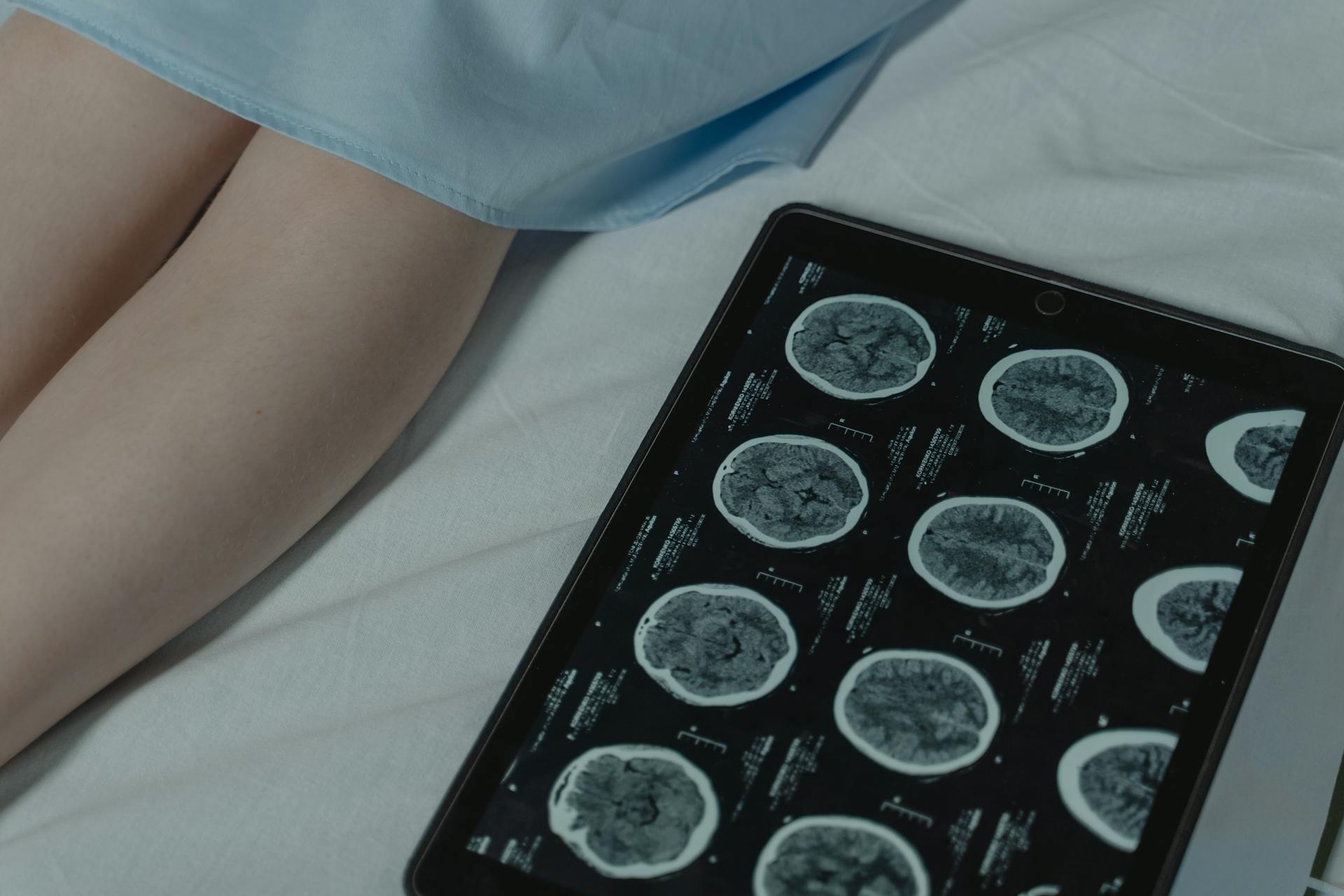
Autoimmune encephalitis (AIE) is a rare and complex neurological condition with symptoms that can range from mild confusion to coma. Due to its severity, those affected usually require intensive care over long periods of time.
Speak to a Specialist
About Copay AssistanceFortunately, there are several long-term treatment options for autoimmune encephalitis. Here, we will explore five autoimmune encephalitis treatments that have been proven effective by studies and patients.
Understanding Autoimmune Encephalitis
Let’s start with a quick guide to autoimmune encephalitis. In this rare autoimmune disorder, the body’s immune system attacks the brain, causing inflammation and symptoms such as:
- Seizures
- Insomnia
- Numbness
- Panic attacks
- Hallucinations
- Severe anxiety
- Impaired memory
- Cognitive difficulties
- Compulsive behaviors
- Involuntary movements
- Difficulty with balance and speech
Symptoms may vary in different subtypes of the disease. However, if left untreated, AIE can become dangerous and even lead to severe coma.
What Causes Autoimmune Encephalitis?
AIE affects around 13 out of every 100,000 individuals. You might wonder, since we have developed effective autoimmune encephalitis treatments, we must know what exactly causes this disease. However, that is not the case in many instances.
While we may not know the exact cause of the disease in all cases, scientists believe it may be triggered by:
- Certain types of cancers
- Presence of a tumor called teratoma
- Exposure to certain bacteria and viruses
How Is Autoimmune Encephalitis Diagnosed?
Diagnosing this condition can be difficult. Sometimes, doctors mistake it for other neurological conditions and even drug abuse.
However, if you visit a neurologist with signs of AIE, they will perform the following tests to confirm the disease:
- MRI
- Blood tests
- A spinal tap
- Neurologic exams
Effective Autoimmune Encephalitis Treatments

After diagnosis, your doctor can decide which long-term treatment for autoimmune encephalitis is best for you. Here are five of the most effective treatments for AIE.
Get Financial Assistance
1. IVIG
Intravenous immunoglobulin (IVIG) is a first-line therapy for autoimmune encephalitis. IVIG infusion treatment involves administering a concentrated dose of antibodies extracted from healthy donated blood plasma to AIE patients.
IVIG’s mechanism of action relies on these antibodies. They neutralize autoantibodies that are causing the disease and regulate the immune response to alleviate symptoms. According to studies, IVIG is one of the safest and most effective treatments for autoimmune encephalitis.
IVIG Administration for Autoimmune Encephalitis
Here are the steps for receiving IVIG therapy for autoimmune encephalitis:
- Patients undergo a thorough evaluation by a neurologist.
- If IVIG is recommended, the physician will schedule a series of infusions.
- IVIG can be administered in a hospital, an outpatient infusion center, or at home, under the supervision of a healthcare professional.
- A trained nurse will administer the prepared solution through an IV line.
- They will monitor the recipient’s vital signs for any adverse reactions.
- The treatment might take anywhere from 1 hour to 4 hours.
- Afterward, patients might feel a slight headache and fever that will subside quickly.
- Patients may require follow-up appointments with their providers to assess the effectiveness of the autoimmune encephalitis treatment.
2. Plasmapheresis
Another long-term treatment for autoimmune encephalitis is plasmapheresis (plasma exchange). This technique involves removing and replacing the person’s plasma to eliminate harmful antibodies and inflammatory substances.
Plasmapheresis results in the rapid improvement of symptoms, which can be helpful for patients with severe refractory AIE.
Plasmapheresis Administration for Autoimmune Encephalitis
Administering plasmapheresis to AIE patients involves the following steps:
- The doctor thoroughly evaluates the individual to determine if plasma exchange is the best treatment for them.
- Patients may need to fast before receiving this autoimmune encephalitis treatment. They may also need to take medications to minimize the side effects of treatment.
- Trained medical professionals typically administer this treatment in a hospital setting.
- They will insert a central venous catheter into a large vein in the arm, neck, or groin.
- This catheter will remove the blood and circulate it through a machine to separate the plasma.
- The plasma with harmful antibodies is filtered, and healthy plasma is returned to the individual’s bloodstream.
- Once the desired plasma volume has been exchanged, the doctors will remove the catheter and allow the patient to rest while monitoring their vital signs.
3. Rituximab and Other Monoclonal Antibodies
Rituximab and monoclonal antibodies are among the most effective autoimmune encephalitis treatments. These targeted therapies are especially effective for patients who have not responded to other forms of treatment.
These monoclonal antibodies work by targeting specific immune system components (such as B cells) to control autoimmune processes in the brain.
Rituximab Administration for Autoimmune Encephalitis
Administering rituximab and other monoclonal antibodies as long-term treatments for autoimmune encephalitis includes the following steps:
- A healthcare provider will evaluate the patient to determine the appropriateness of targeted immunotherapy.
- They will determine the dosage of rituximab and the treatment schedule based on the patient’s weight and AIE subtype.
- The medication is typically infused in cycles over several weeks or months.
- The patient is closely monitored throughout autoimmune encephalitis treatment for side effects and disease progression.
- Patients will attend follow-up appointments to assess their response to medication and adjust the treatment plan as needed.
Get Copay Assistance Now
4. Corticosteroids
Corticosteroids such as prednisone and methylprednisolone are effective treatment options when used in combination with other therapies.
These medications work by reducing inflammation in the brain and suppressing the immune response. This action alleviates neurological symptoms in affected individuals and improves their quality of life.
Corticosteroids Administration for Autoimmune Encephalitis
Here is how corticosteroids are administered to AIE patients:
- Before starting this treatment for autoimmune encephalitis, patients undergo a comprehensive evaluation by a physician.
- The physician will determine the appropriate dosage and duration of therapy based on clinical symptoms.
- They will prescribe a specific corticosteroid medication based on the patient’s needs.
- The patient will receive treatment orally in pill form or intravenously through an IV drip.
- The physician will monitor the patient’s response to treatment and adjust the dosage and duration of therapy if necessary.
- As the patient’s symptoms improve, the physician will gradually reduce the dosage and monitor the patient for relapse.
5. Stereotactic Radiosurgery
The last effective autoimmune encephalitis treatment on our list is stereotactic radiosurgery. This long-term treatment for autoimmune encephalitis is a non-invasive procedure. It uses high doses of radiation to target specific areas in the brain.
This treatment is best for patients with focal brain regions resistant to other therapies. The radiation will reduce inflammation and control autoimmune processes without the need for open surgery.
Stereotactic Radiosurgery Operation for Autoimmune Encephalitis
The procedure is delivered to AIE patients in the following steps:
- Affected individuals undergo MRI or CT scans to identify target lesions.
- An interdisciplinary team of neurologists, neurosurgeons, and radiation specialists collaborate to determine whether radiosurgery is a suitable treatment for the person with autoimmune encephalitis.
- Based on the results, they develop a treatment plan for the patient.
- They use computer algorithms and specialized software to map the exact locations of lesions and spare the surrounding healthy areas.
- For the surgery, patients lie down on a treatment table, and the radiation specialists deliver the beams to the identified areas.
- Patients may require multiple sessions.
- Afterward, they are monitored for side effects and changes in symptoms.
Challenges in Treating Autoimmune Encephalitis

While there have been advancements in the treatment of autoimmune encephalitis, several challenges still exist. Let’s look at some of them.
Get Financial Assistance
For Autoimmune EncephalitisDiagnosis Delays
One of the biggest challenges in administering long-term treatment for autoimmune encephalitis is delays in diagnosis.
Due to the similarity of AIE’s symptoms to other neurological disorders, doctors may misdiagnose the condition. This delayed diagnosis will lead to the progression of symptoms and delays in receiving appropriate treatment.
Side Effects
Some patients may experience severe side effects with current treatments. These side effects may include:
- Infections
- Allergic reactions
- Damage to healthy tissues
Treatment Resistance
In some cases, patients may develop resistance to autoimmune encephalitis treatments. The medications will no longer work, and the condition becomes unmanageable.
This resistance can complicate treatment decisions, necessitating a more personalized approach.
Access to Specialized Care and Medications
The last challenge in treating autoimmune encephalitis is the lack of access to specialized care and medications. Many patients live in areas where they do not have access to specialized healthcare providers.
No neurologists or immunologists are available in their vicinity to make a correct diagnosis. Additionally, they may not have access to specialized medications used in treating AIE.
These are some of the primary challenges individuals with autoimmune encephalitis face. By addressing these issues and developing more targeted treatments, we can enhance the quality of care for those living with this debilitating neurological disorder.
Fight Autoimmune Encephalitis With AmeriPharma® Specialty Pharmacy
Autoimmune encephalitis is not an unbeatable disease. If your doctor diagnoses it early, you can receive effective autoimmune encephalitis treatment and manage your condition.
If you are looking for accessible long-term treatments for autoimmune encephalitis, AmeriPharma® Specialty Pharmacy can help.
We offer at-home IVIG therapy to those battling this autoimmune disorder in 40+ US states and territories. Our specialty pharmacy can even send specialized infusion nurses to your home to administer the treatment and help you troubleshoot any problems.
Contact us now to receive specialty care at home and manage AIE with our full-service coordination, 24/7/365 support, and copay assistance.

